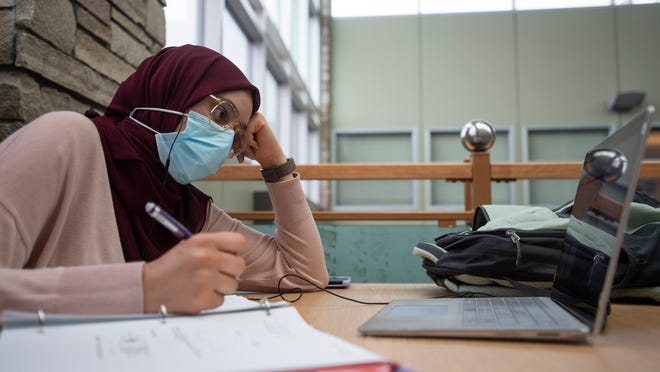(Coloradoan) – When Alaa Eldeiry wakes up each morning, the sky is still dark.
She shuffles around to make a morning meal — something with protein washed down with a lot of water, sometimes a peanut butter and jelly sandwich and sometimes fruit and beans.
Eldeiry sits down to eat one of her two meals for the day and begins her morning prayers, usually around 3:45 a.m.
When the sun begins to rise, she tries to get in about 45 minutes of reading the Quran before shifting her focus to schoolwork for the day. Or going back to sleep for a few hours.
Eldeiry has been operating on this schedule for the past month while observing Ramadan, a month of fasting and reflection for Muslims as they prepare for Eid al-Fitr, a three-day celebration and one of two holidays celebrated in the faith.
Eldeiry and other Muslim college students, both in Fort Collins and across the country, face a unique challenge this year: The end of the month — the holiest time of Ramadan, when the schedule becomes more intense — is coinciding with final exams.
Because it follows the lunar calendar, the start of Ramadan moves up by 11 days each year. In 2019, some college students had finals at the beginning of Ramadan, but Eid al-Fitr and the end of Ramadan haven’t coincided with the end of a school year for more than a decade.
This intersection means some Muslim students are sacrificing elements of their faith to keep up with their studies, or elements of their studies to keep up with their faith.
On Eid al-Fitr, Muslims are expected to go to a special prayer at the mosque in the morning and then to a large celebration with food and festivities where they spend the day with the community.
magine having to take finals during Christmas, or during Hanukkah,” Eldeiry said. This is huge for us.”
During Ramadan, Muslims fast between dawn and dusk with the goal of growing closer to God. The month is usually one of “self-reflection, and spiritual improvement, and as a means to grow in moral excellence,” according to the Islamic Network Groups. Ramadan is also a social time because people often try to break their fasts with family or friends. Prepubescent children, elderly people, pregnant women and some other groups are exempt from the fasting.
